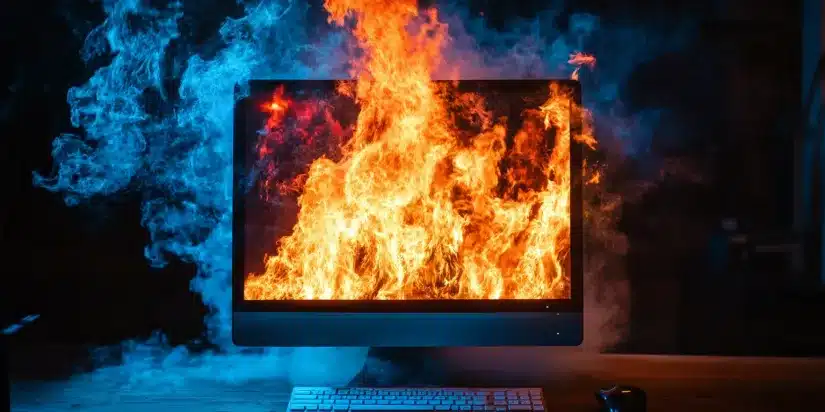In the rapidly evolving landscape of digital assets and DeFi protocols, security remains a paramount concern for developers, investors, and users alike. The recent actions taken by Nexera, a decentralized finance protocol, underscore the ongoing battle against malicious actors in the crypto space.
Nexera Burns Millions of NXRA After Exploit
Nexera’s response to a significant security breach, which led to the unauthorized withdrawal of $1.5 million worth of digital assets, highlights the challenges and steps protocols are willing to take to maintain ecosystem stability and protect users. The decision to burn 32.5 million NXRA tokens related to the hack is a direct effort to mitigate the repercussions of the attack, ensuring these tokens cannot re-enter circulation or further impact the market.
The incident did not just showcase Nexera’s quick reflexes in freezing and eliminating the compromised tokens but also emphasized the sophisticated measures DeFi protocols must adopt. Despite the breach, the smart contracts integral to Nexera’s operations remained untarnished, showcasing the robustness of the underlying technology.
As attackers become ever more creative, the incident with Nexera serves as a reminder of the importance of security within the digital asset ecosystem. It also points to the resilience and reactionary capabilities of DeFi protocols, vital for fostering trust and safeguarding the interests of stakeholders.
Rain Exchange Hacker Starts Laundering Funds
The digital realm further witnessed the laundered movements of stolen ethereum by the hacker responsible for the compromise of the Rain crypto exchange. Utilizing Tornado Cash, a decentralized non-custodial privacy solution, the perpetrator aimed to obfuscate the origins of substantial stolen funds.
This incident sheds light on the dual-edged nature of crypto mixers. While offering privacy to users who wish to maintain anonymity rightfully, they also present a veil under which cybercriminals attempt to cleanse the proceeds of their exploits. The laundering activity not only exacerbates the challenge of tracking and recovering stolen assets but also brings to fore the ongoing dialogue around the use and regulation of privacy tools in the crypto space.
Stolen Unizen Funds Move to Tornado Cash
Similarly, the movement of nearly $2.16 million worth of ETH associated with the Unizen hack to Tornado Cash amplifies the complexities in addressing security breaches. Despite the regular advancements in blockchain security and monitoring, the anonymity provided by such services complicates the efforts to trace illicit activities.
Unizen’s proactive approach in reimbursing affected users shows the responsiveness and responsibility DeFi platforms must embody. As the sector grows, the commitment to user protection against hacks becomes increasingly pivotal, reinforcing the call for heightened security measures and transparent operations.
MEV Bot Accidentally Exploits Ronin, Returns ETH
In a curious turn of events, a Maximum Extractable Value (MEV) bot inadvertently exploited the Ronin network but returned the pilfered funds. This scenario illustrates the unforeseen interactions between automated bots designed to maximize transaction value and existing vulnerabilities within blockchain protocols.
Although the funds were returned, the incident acts as a catalyst for discussions on the ethical implications and potential regulation of MEV strategies. It further emphasizes the need for continuous auditing and security enhancements, alongside the development of more sophisticated anomaly detection systems within blockchain ecosystems.
AI Security System Rivals Top Pentesters
On a more optimistic note, the advancements in AI-powered security systems offer a gleaming prospect for future defense mechanisms in the blockchain arena. An AI system’s ability to match the efficiency of top human cybersecurity experts in penetration testing showcases a significant leap towards automating and enhancing security protocols.
The integration of AI in identifying vulnerabilities at an unprecedented pace could revolutionize the approach towards securing digital assets and DeFi platforms. As hacks continue to shadow the crypto world, the deployment of AI in security strategies holds promise for creating a resilient and robust digital asset environment.
In summary, the fight against cybersecurity threats in the crypto space is multifaceted, involving proactive measures by DeFi protocols, advancements in security technologies, and the complex balance between privacy and transparency. The community’s collective efforts towards bolstering security frameworks are crucial for the sustained growth and mainstream acceptance of cryptocurrencies and DeFi services.
